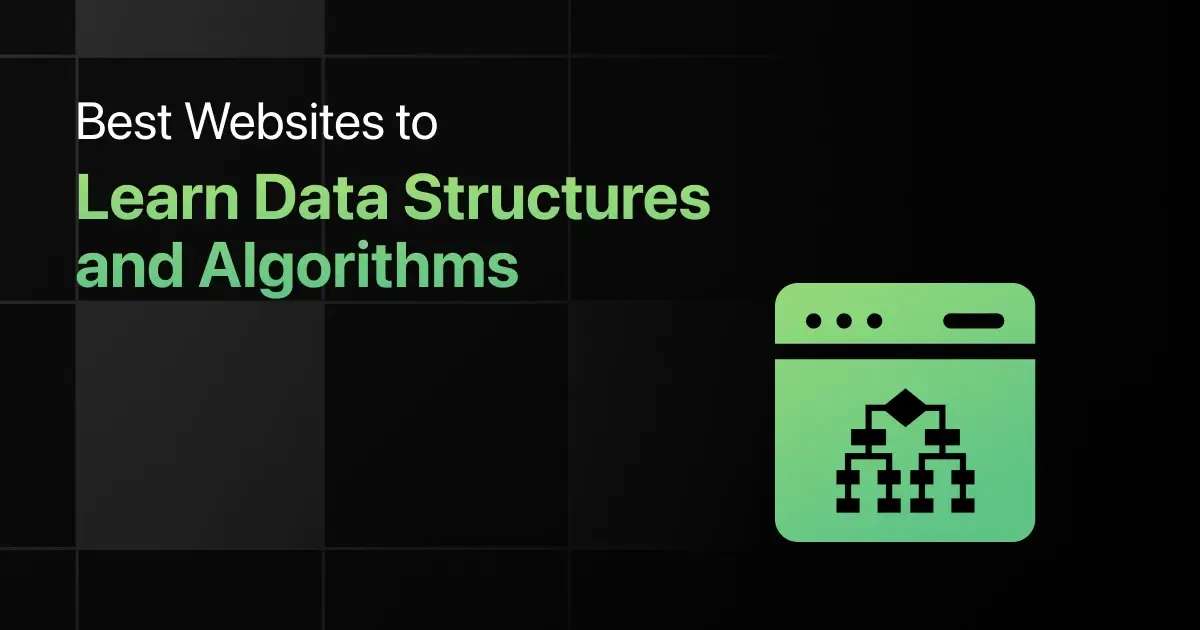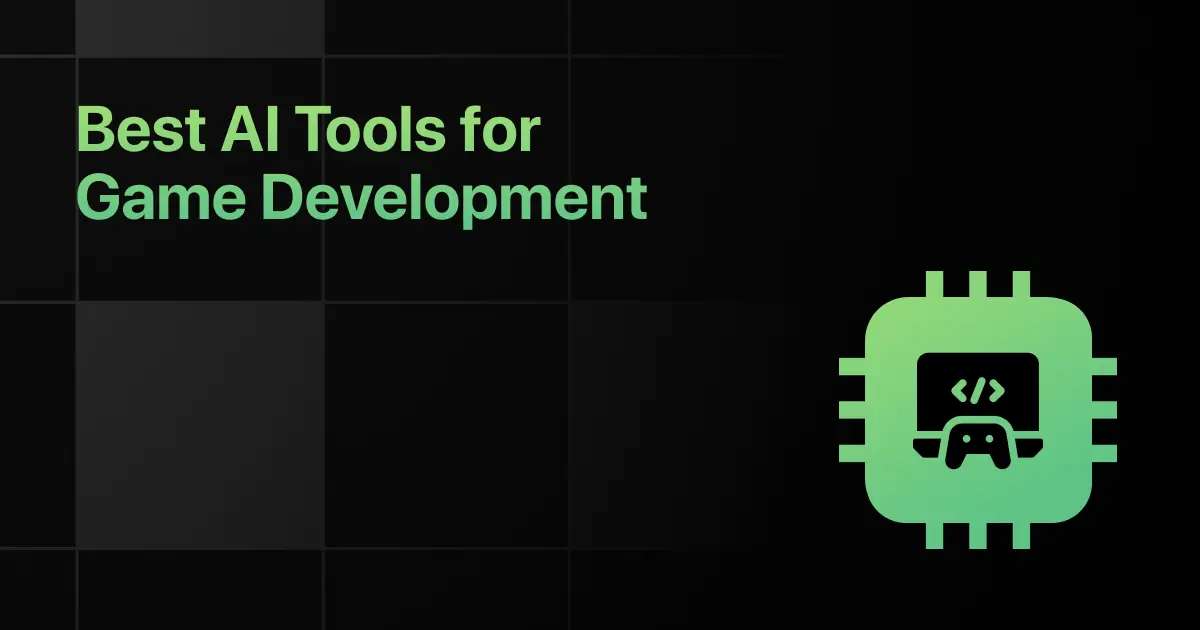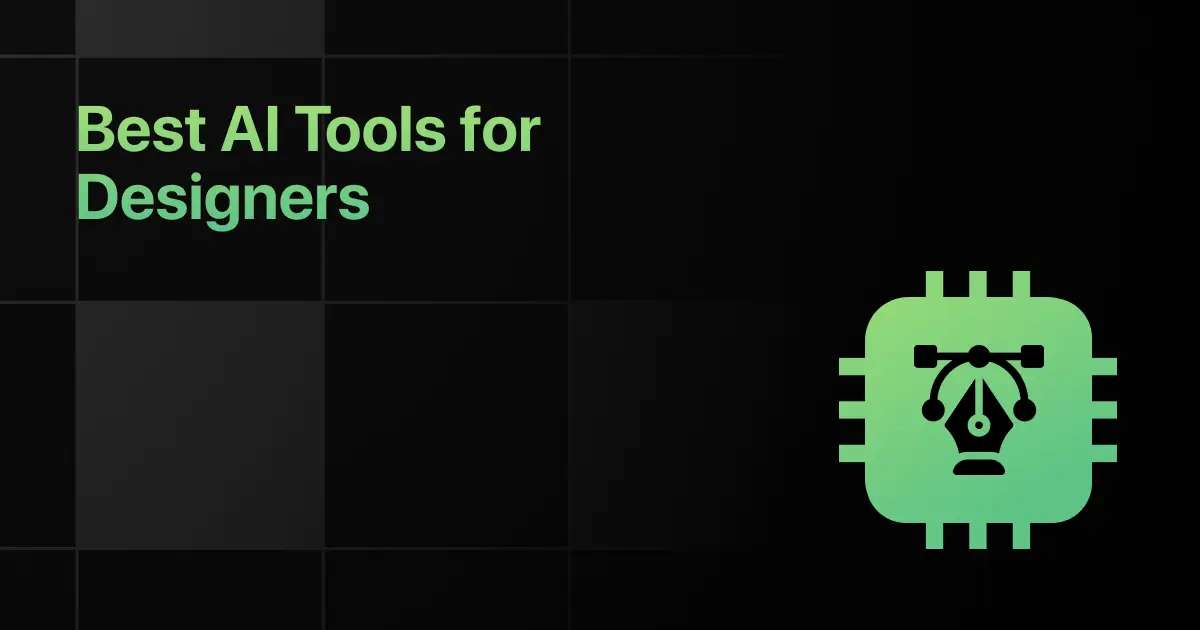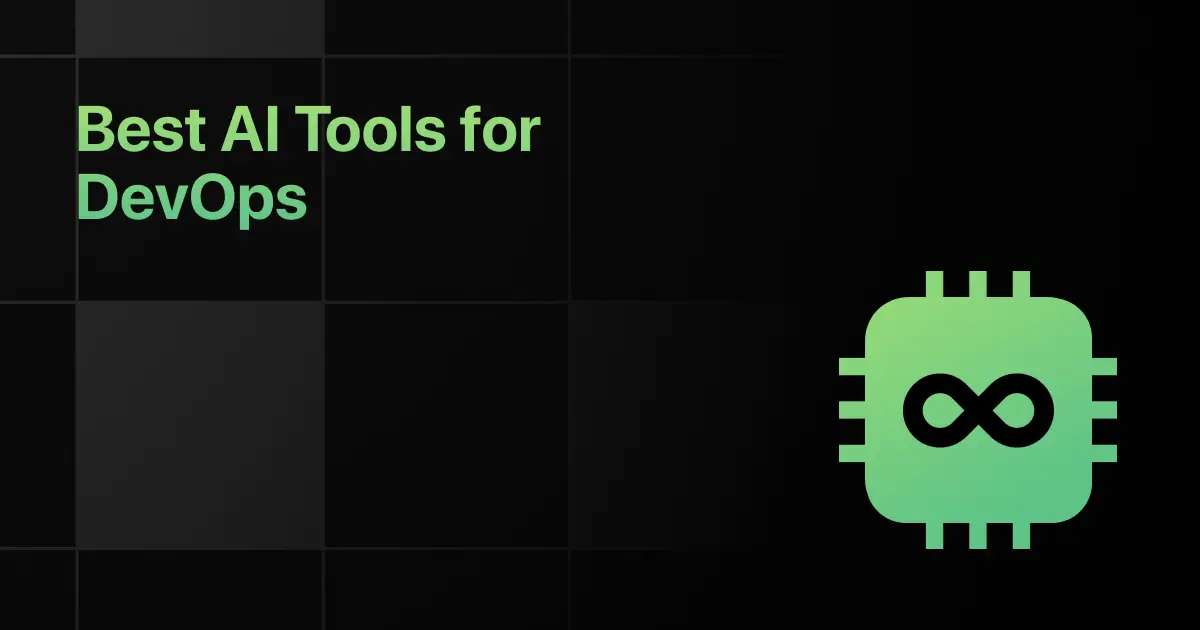Best Websites to Learn Data Structures and Algorithms

Wondering how to crack the code of data structures and algorithms without spending a rupee?
Check out the best websites to learn Data Structures and Algorithms for free, where you can get to grips with these key programming concepts in a pocket-friendly way.
10 Best Websites for Data Structures and Algorithms – Overview
Here’s an overview of the top 10 websites to learn Data Structures and Algorithms:
| S.No. | Website Name | Course Duration | Pricing | Certification | Website Link |
|---|---|---|---|---|---|
| 1 | GUVI | 15 hours | Paid | Yes | Visit Now |
| 2 | Coursera | 5 months | Freemium | Yes | Visit Now |
| 3 | Codecademy | Self-paced | Paid | Yes | Visit Now |
| 4 | HackerRank | Self-paced | Free | No | Visit Now |
| 5 | edX | 6 weeks | Freemium | Yes | Visit Now |
| 6 | Interview Cake | Self-paced | Free | No | Visit Now |
| 7 | MIT OpenCourseWare | Self-paced | Free | No | Visit Now |
| 8 | freeCodeCamp | 6 hours | Free | No | Visit Now |
| 9 | Coderbyte | 1 week | Free | No | Visit Now |
| 10 | Techie Delight | Self-paced | Free | No | Visit Now |
Best Websites to Learn Data Structures and Algorithms for Beginners
Below is the list of best websites to learn Data Structures and Algorithms for beginners:
1. GUVI
GUVI’s “DSA Using Python” course is an online program designed to teach the fundamentals of Data Structures and Algorithms using Python.
It covers dynamic data structures such as Linked Lists and Trees, and spans topics from fundamental algorithm analysis to advanced structures like heaps. The course includes real-world scenarios, teaching searching and sorting algorithms like Quick Sort and dynamic programming challenges like the Knapsack problem.
It includes 15 hours of recorded content and is rated 4.5 by over 1000 learners. The course is available in English and is part of GUVI’s premium course offerings.
Course Diversity: Covers dynamic data structures, algorithm analysis, and advanced structures.
Learning Style: Balanced blend of theory and hands-on exercises.
Pricing Structure: Premium course priced at Rs. 2499.
Platform Usability: User-friendly online format with recorded content.
Certifications Offered: Globally recognized certification upon completion.
Language Options: Available in English.
Instructor Expertise: Course content developed by industry experts.
Duration of Courses: 15 hours of recorded content.
Community and Support: Dedicated forum support for doubt clearance.
2. Coursera
The “Data Structures and Algorithms” specialization on Coursera, offered by the University of California San Diego, is a comprehensive program designed to master algorithmic programming techniques.
It consists of six courses that cover a wide range of topics, including algorithmic puzzles, greedy algorithms, binary search, dynamic programming, data structures like stacks, queues, trees, and graphs, and programming challenges often seen in high-tech company interviews.
The specialization also applies these algorithmic techniques to real-life problems, such as analyzing big networks or sequencing genomes.
Course Diversity: Covers a wide range of algorithmic techniques and data structures.
Learning Style: Hands-on learning with algorithmic puzzles and real-world challenges.
Pricing Structure: Accessible through Coursera subscription, financial aid available.
Platform Usability: User-friendly platform with courses structured for easy navigation and progress tracking.
Certifications Offered: Shareable certificate upon completion of the specialization.
Language Options: Content available in English with subtitles in 20 languages.
Instructor Expertise: Courses taught by Michael Levin and other experienced instructors.
Duration of Courses: Approximately 5 months at 10 hours a week.
Community and Support: Access to Coursera’s community of learners and developers.
3. Codecademy
Codecademy’s “Learn Data Structures and Algorithms with Python” course is an intermediate-level program designed to teach the fundamentals of data structures and algorithms using Python.
The course covers a wide range of topics, including nodes, linked lists, doubly linked lists, queues, stacks, hash maps, and more. It is structured into 37 lessons, 6 projects, and 30 quizzes, providing a comprehensive learning experience.
The course aims to equip learners with the ability to structure data so algorithms can maintain, utilize, and iterate through data quickly. The course includes practical exercises and projects, such as creating a game that emulates the famous mathematical puzzle Towers of Hanoi and building a hash map to store the language of flowers.
Course Diversity: Covers various data structures and algorithms, including linked lists, queues, stacks, and hash maps.
Learning Style: Interactive and hands-on with projects and quizzes.
Pricing Structure: Included with Codecademy’s paid plans.
Platform Usability: User-friendly, with AI-assisted learning and a mobile IDE.
Certifications Offered: Certificate of completion included with paid plans.
Language Options: Content available in English.
Instructor Expertise: Developed by Alisha Grama, Senior Instructional Designer at Codecademy.
Duration of Courses: Self-paced with a structured learning path.
Community and Support: Access to Codecademy’s community and learning resources.
4. HackerRank
HackerRank’s Data Structures domain is a dedicated section for practicing and mastering a variety of data structures through coding challenges.
It covers a wide range of topics, including arrays, linked lists, trees, balanced trees, stacks, queues, heaps, disjoint sets, tries, and more. Each topic includes a series of challenges that vary in difficulty from easy to hard, allowing users to progressively improve their skills. The challenges are accompanied by success rates and maximum scores, providing insights into their complexity and popularity.
This domain is an excellent resource for anyone preparing for coding interviews, or participating in competitive programming.
Course Diversity: Covers a broad range of data structures and related challenges.
Learning Style: Hands-on coding challenges with varying difficulty levels.
Pricing Structure: Free access to coding challenges.
Platform Usability: User-friendly interface with structured challenge categories.
Certifications Offered: Does not offer certifications for individual challenges.
Language Options: Content available in English.
Instructor Expertise: Challenges designed by experienced programmers and industry experts.
Duration of Courses: Self-paced, time varies based on individual participation.
Community and Support: Access to a community of programmers and discussion forums.
5. edX
The “Data Structures Fundamentals” course offered by the University of California, San Diego on edX is an intermediate-level program that delves into the common data structures used in various computational problems.
This course is part of the Algorithms and Data Structures MicroMasters program and covers topics such as resizing dynamic arrays, implementing priority queues in different programming languages, hash table implementation, and strategies to keep binary trees balanced.
It is structured to provide both theoretical knowledge and practical skills, making it suitable for learners who have a basic grasp of programming and mathematics.
Course Diversity: Covers a range of data structures and their applications.
Learning Style: Combines theoretical knowledge with practical implementation.
Pricing Structure: Free to enroll with an optional upgrade available.
Platform Usability: User-friendly interface with easy navigation and access to course materials.
Certifications Offered: Part of the MicroMasters Program in Algorithms and Data Structures.
Language Options: Course and video transcripts available in English.
Instructor Expertise: Taught by faculty from the University of California, San Diego.
Duration of Courses: 6 weeks, with an estimated effort of 8–10 hours per week.
Community and Support: Offers a robust community and support system.
6. Interview Cake
Interview Cake’s Data Structures Reference section is a concise and informative resource designed for coding interviews and computer science classes.
This section provides a quick reference to the big O costs and core properties of various data structures, making it an invaluable tool for interview preparation and study.
It covers a wide range of data structures, including arrays, dynamic arrays, linked lists, queues, stacks, hash tables, trees, binary search trees, graphs, tries, heaps, priority queues, bloom filters, and LRU caches.
Each data structure is described with its key characteristics and performance considerations. This reference is particularly useful for understanding the trade-offs between different data structures in terms of time complexity and for choosing the right data structure for a given problem.
Course Diversity: Covers a comprehensive range of data structures with their big O costs and properties.
Learning Style: Quick-reference format ideal for interview prep and academic study.
Pricing Structure: Free access to the reference material.
Platform Usability: User-friendly and easy to navigate.
Certifications Offered: Does not offer certifications for this reference material.
Language Options: Content available in English.
Instructor Expertise: Content developed by Interview Cake, known for quality interview prep resources.
Duration of Courses: Self-paced, quick-reference guide.
Community and Support: Does not specify community or support options.
7. MIT OpenCourseWare
The “Introduction to Algorithms” course, offered by MIT OpenCourseWare, is an undergraduate-level course that provides an introduction to mathematical modeling of computational problems.
It covers common algorithms, algorithmic paradigms, and data structures used to solve these problems. The course emphasizes the relationship between algorithms and programming and introduces basic performance measures and analysis techniques.
Taught by Prof. Erik Demaine, Dr. Jason Ku, and Prof. Justin Solomon, it includes lecture videos, lecture notes, quizzes, practice problems, and assignments. The course is part of the Electrical Engineering and Computer Science department and covers topics in engineering, computer science, algorithms and data structures, the theory of computation, and mathematics.
Course Diversity: Covers algorithms, algorithmic paradigms, and data structures in computational problems.
Learning Style: Includes lecture videos, notes, quizzes, and practice problems.
Pricing Structure: Free access to course materials.
Platform Usability: Well-organized content for easy learning.
Certifications Offered: Does not offer certifications.
Language Options: Content available in English.
Instructor Expertise: Taught by experienced MIT faculty.
Duration of Courses: Self-paced, based on the learner’s schedule.
Community and Support: Does not specify community or support options.
8. freeCodeCamp
The freeCodeCamp website, in collaboration with Treehouse, offers a comprehensive “Algorithms and Data Structures” course. This course, available on the freeCodeCamp.org YouTube channel, is developed by teachers Pasan Premaratne and Jay McGavren.
It’s a combination of three shorter courses: Introduction to Algorithms, Introduction to Data Structures, and Algorithms: Sorting and Searching. The course provides an excellent introduction to algorithms and data structures, covering fundamental topics like arrays, linked lists, and sorting algorithms like Merge Sort, Selection Sort, Quicksort, and search algorithms like Sequential Search and Binary Search.
This 6-hour course is designed to help learners understand what algorithms and data structures are, how they are measured and evaluated, and how they are used by developers to solve problems.
Course Diversity: Combines three courses covering algorithms, data structures, sorting, and searching.
Learning Style: Video-based learning with practical examples and code snippets.
Pricing Structure: Free access on the freeCodeCamp.org YouTube channel.
Platform Usability: Accessible and easy to follow along on YouTube.
Certifications Offered: Does not specify certifications for this course.
Language Options: Content available in English.
Instructor Expertise: Developed by experienced teachers Pasan Premaratne and Jay McGavren.
Duration of Courses: 6 hours of comprehensive content.
Community and Support: Access to freeCodeCamp’s vast community of learners and developers.
9. Coderbyte
Coderbyte’s “Algorithms and Data Structures” starter course is an in-depth educational resource designed to teach foundational topics in computer science.
This course is structured to cover key areas including Big-O notation, recursion, binary search, common data structures, and more. It offers a series of videos and challenges aimed at enhancing learners’ understanding of these critical topics.
The course is divided into sections focusing on Big-O, recursion, linked lists, stacks & queues, trees, graphs, and dynamic programming. Each section includes instructional videos and practical coding challenges, allowing learners to apply their knowledge in real-world scenarios.
Course Diversity: Covers Big-O, recursion, binary search, data structures, and more.
Learning Style: Video-based learning with practical coding challenges.
Pricing Structure: Free access to course materials.
Platform Usability: User-friendly and easy to navigate.
Certifications Offered: Does not specify certifications for this course.
Language Options: Content available in English.
Instructor Expertise: Content developed by experienced programmers and educators.
Duration of Courses: Self-paced, time varies based on individual participation.
Community and Support: Does not specify community or support options.
10. Techie Delight
Techie Delight’s Data Structures and Algorithms Problems section is a vast collection of coding challenges and problems focused on various computer science topics.
It covers a wide range of topics, including arrays, dynamic programming, linked lists, graphs, heaps, bit manipulation, strings, stacks, queues, backtracking, sorting, and advanced data structures like Trie and Treap. Each topic includes a series of problems that vary in difficulty, allowing users to progressively improve their skills.
The problems are accompanied by solutions and explanations, providing insights into the complexity and implementation of different data structures and algorithms.
Course Diversity: Covers a broad range of data structures and algorithms topics and problems.
Learning Style: Hands-on coding challenges with solutions and explanations.
Pricing Structure: Free access to coding problems and solutions.
Platform Usability: User-friendly interface with structured problem categories.
Certifications Offered: Does not offer certifications for individual problems.
Language Options: Content available in English.
Instructor Expertise: Problems designed by experienced programmers and industry experts.
Duration of Courses: Self-paced, time varies based on individual participation.
Community and Support: Opportunity to share code solutions in the comments and interact with other users.
Frequently Asked Questions
1. What are the best websites for learning data structures and algorithms?
The best websites for learning data structures and algorithms are:
- GUVI
- Coursera
- Codecademy
- HackerRank
- edX
- freeCodeCamp
2. What are some free data structures and algorithms learning websites along with certifications?
edX, Interview Cake, MIT OpenCourseware, freeCodeCamp, Coderbyte, and Techie Delight are some free data structures and algorithms learning websites along with certifications.
3. Why should I choose a website for learning Data Structures and Algorithms?
You should choose a website for learning Data Structures and Algorithms because they offer flexibility and have a variety of learning resources. They cater to different learning styles with interactive tutorials, video lectures, and hands-on exercises.
4. How do I choose the right website for learning Data Structures and Algorithms?
You can choose the right website for learning Data Structures and Algorithms by considering factors like course content quality, learning style compatibility (videos, interactive exercises), instructor expertise, community support, and pricing.
5. Can a beginner learn Data Structures and Algorithms effectively through websites?
Yes, beginners can effectively learn Data Structures and Algorithms through websites. Many platforms offer beginner-friendly courses that start with basics and gradually progress to more complex topics.
6. Are there websites that offer content in multiple languages for learning Data Structures and Algorithms?
Yes, websites like Coursera and Udemy provide Data Structures and Algorithms learning content in multiple languages and subtitles.
Final Words
These sites are like your free personal coding coaches, making the often-intimidating world of data structures and algorithms easy to understand and fun to learn.
Keep checking this article as we will keep updating this space as more websites make space in the heart and study schedule of students preparing for placements and competitive exams.
Explore More DSA Resources
Explore More Websites
- Python
- Java
- Coding
- C++
- C Programming
- SQL
- JavaScript
- Data Science
- HTML & CSS
- Web Development
- AI & Machine Learning
- Ethical Hacking
- Android Development
- React JS
- Game Development
- Competitive Programming
- Digital Marketing
- Tableau
- DBMS
- R Programming
- PHP
- Cyber Security
- Excel
- Node JS
- Data Analytics
- Bootstrap
- Cloud Computing
- Operating System
- Angular
- RPA
Related Posts


Best AI Tools for Game Development [Free + Paid]
Ever feel stuck staring at things , not knowing what to do next? You're not alone. Game development can be …








